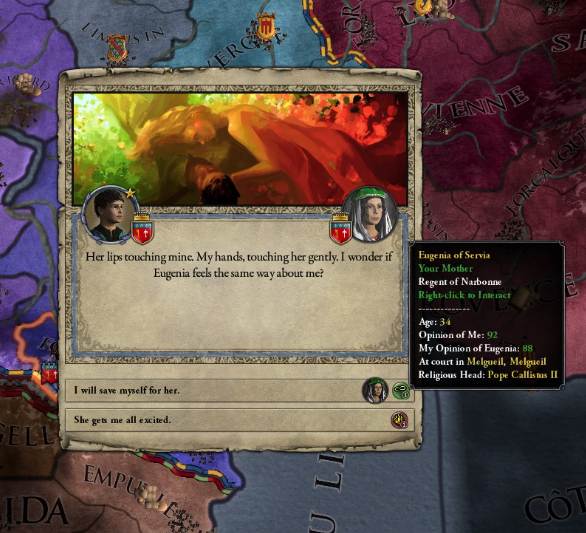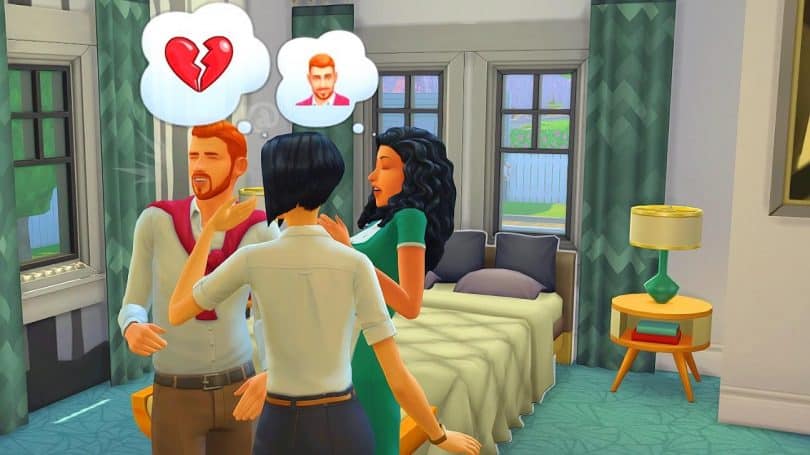I found myself with an empty Tuesday evening, so decided to puzzle a bit more on this question of a framework for emergent storytelling. While reading a chapter, I stumbled on a citation to this Verge piece, which led me to a few other pieces, eventually leading me to want to articulate what I mean by procedural storytelling and emergent storytelling.
To me, they are different but connected things, and I’m going to try to explain the subtlety between them. Recently, it seems the term “procedural storytelling” has somewhat subsumed both categories, so this is probably a little pedantic, but it does become a real pointTM if you can stick with me.
Some definitions
Procedural storytelling: directly generating narratives via some algorithm or script. The direct output of this mostly computational challenge is a coherent and cohesive narrative. A lot of work over time has gone into trying to structure narrative in pieces to then generate a multitude of outcomes that are all still coherent narratives, to use AI to try to generate fiction (AI Dungeon), or some combination of these things. Procedural storytelling autonomously generates stories. It doesn’t require an external agent to impose narrative structure, because the output of the system is narrative itself.
Emergent storytelling: requires an external agent to impose narrative structure. It is the narrative that emerges from a system designed for some other purpose. The Sims, for example, does not generate stories. It simulates people living a life, most of which is extremely boring and involves avoiding bathroom accidents, or continuously greeting strangers only for them to walk away and leave the lot. Crusader Kings is a simulation of history, complete with armies and countries and rulers. Yes, interesting stories can and do emerge, but the game itself is a complex math machine designed to simulate the march of history. Interesting stories emerge indirectly, and it takes an outside agent (a player) to recognize and define them. Dwarf Fortress and Rimworld are other games in this category. The vast majority of things that happen in any of these games or games like them are uninteresting, repetitive, and/or irrelevant to whatever the player cares about, and yet they are very fun.
Note: this category includes both autonomous and directed emergent storytelling as described in my previous post.
Scripted narrative: encompasses both branching and linear narratives. These are authored narratives that are experienced by players such as you’d find in the Witcher 3 or Baldur’s Gate 3 or other games that don’t necessarily include the number three. I won’t spend time here in this post, even though I have a deep, deep love for branching narratives.
Now, with those bounds set, we can argue about where games fall on that spectrum and whether or not that spectrum is accurate. But I’d like to talk about “story-sifting” within this frame.
Story-sifting
Story-sifting is a term for surfacing the things that are interesting from a sea of random events. As defined above, this is typically a player responsibility. Many uninteresting things happen; players find the diamonds in the rough and impose narrative structure on them. Story-sifting by a machine automates this task. Now, instead of players identifying interesting moments in their simulation, an algorithm could do so. And if an algorithm can understand what parts of a story are interesting, it would likely be better at generating new stories directly.
This is where the line between procedural and emergent starts to blend. Now, you could have an autonomous system both create a sea of uninteresting random events and also surface the minority of interesting moments, thereby generating a coherent and cohesive narrative. I could let my Sims world run for hours, and an algorithm could tell me a lovely tale of the interesting things that happened.
But why would I?
Part of what makes emergent narrative so interesting and valuable is that it is unexpected. I am surprised when my Sim gets angry and slaps her husband because he flirted with the bartender. I am surprised when I discover in Crusader Kings that my wife had twins 3 years ago with my rival, so my heir isn’t actually my son, and here I am infirm and obese, soon to be bereft of a throne. Most of my play is about the intricacies of raising a family or ruling a realm, occasionally interspersed with these moments of narrative joy.
I’m curious how we will see procedural storytelling develop, as the research tends to focus on the computational challenge while design balances efficiency and experience. Maybe there is a formula we could discover that could quantify exactly how many interesting moments should be elevated compared to the uninteresting sea beneath (skeptical face). Maybe we could develop an algorithm that responds to player activity with a dose of expertly-sifted narrative pleasure just when their behavior seems to show waning interest. I understand the siren’s song that is procedural narrative. There’s something magical about figuring out stories to the extent you could teach a machine to tell them. But I think, like most things, the best future is one not where the machine tells stories for us, but where it helps us do so better ourselves.
For example, what if we had a tool that could help us and/or the game agents make choices that may eventually lead to more interesting / more varied emergences. Maybe in Crusader Kings 3, it’s a tool that lets me record the memories/events I think are interesting and then pieces them together for me. Maybe it’s a system built on story-sifting that may produce highlights of what happened in the world, introducing us to characters in another realm with some juicy drama that we could incorporate into our own play (hello, abduction scheme). I would love to see more work focused on co-authorship and narrative co-creation, in both emergent and scripted narratives, where insights from computational work on procedural storytelling can be brought to bear.







Recent Comments